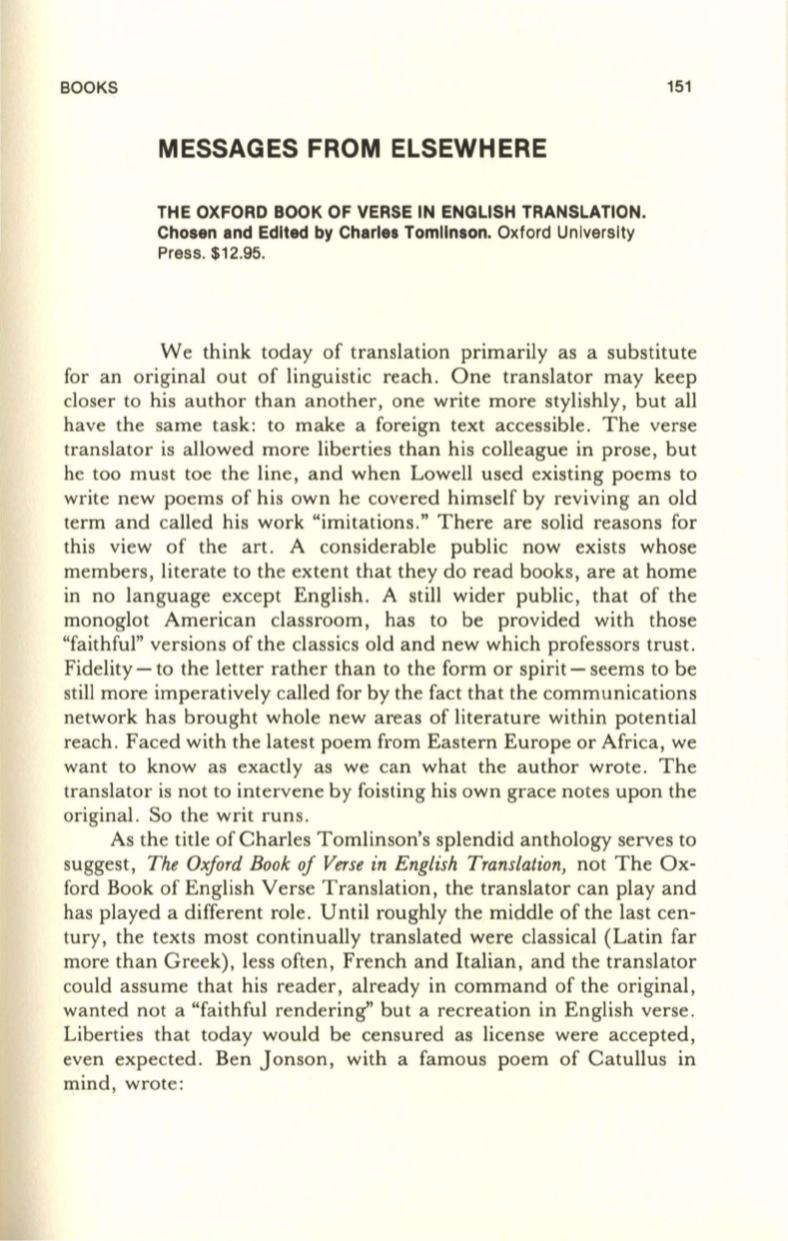
BOOKS
MESSAGES FROM ELSEWHERE
THE OXFORD BOOK OF VERSE IN ENGLISH TRANSLATION.
Chosen and Edited
by
Charles Tomlinson.
Oxford University
Press. $12.95.
151
We think today of translation primarily as a substitute
for an original out of linguistic reach. One translator may keep
closer to his author than another, one write more stylishly, but all
have the same task: to make a foreign text accessible. The verse
translator is allowed more liberties than his colleague in prose, but
he too must toe the line, and when Lowell used existing poems to
write new poems of his own he covered himself by reviving an old
term and called his work "imitations." There are solid reasons for
this view of the art. A considerable public now exists whose
members, literate to the extent that they do read books, are at home
in no language except English. A still wider public, that of the
monoglot American classroom, has to be provided with those
"faithful" versions of the classics old and new which professors trust.
Fidelity - to the letter rather than to the form or spirit - seems to be
still more imperatively called for by the fact that the communications
network has brought whole new areas of literature within potential
reach. Faced with the latest poem from Eastern Europe or Africa, we
want to know as exactly as we can what the author wrote. The
translator is not to intervene by foisting his own grace notes upon the
original. So the writ runs.
As the title of Charles Tomlinson's splendid anthology serves to
suggest,
The Oxford Book of Verse in English Translation,
not The Ox–
ford Book of English Verse Translation, the translator can play and
has played a different role. Until roughly the middle of the last cen–
tury, the texts most continually translated were classical (Latin far
more than Greek), less often, French and Italian, and the translator
could assume that his reader, already in command of the original,
wanted not a "faithful rendering" but a recreation in English verse.
Liberties that today would be censured as license were accepted,
even expected. Ben Jonson, with a famous poem of Catullus in
mind, wrote :


